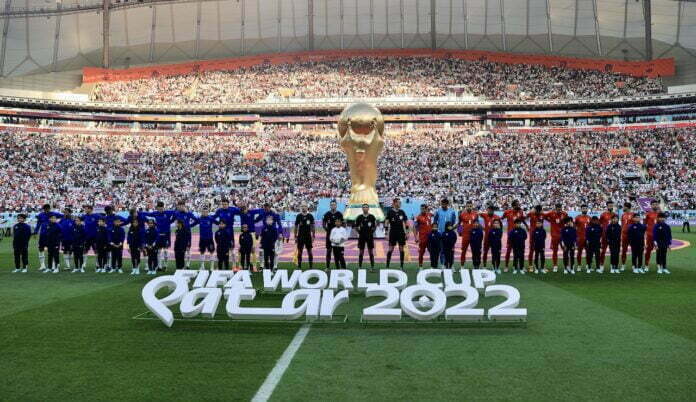After 13 days and 48 matches, the first edition of the FIFA World Cup™ to be hosted in the Middle East and Arab world has presented an array of facts and figures, starting with a cumulative stadium attendance of 2.45 million spectators. That equals an average of 96% occupancy and is higher than the corresponding 2.17 million figure for the 2018 edition. The highest attendance in the history of the FIFA World Cup since 1994 final was seen at Lusail Stadium, where 88,966 fans witnessed Argentina v. Mexico match.
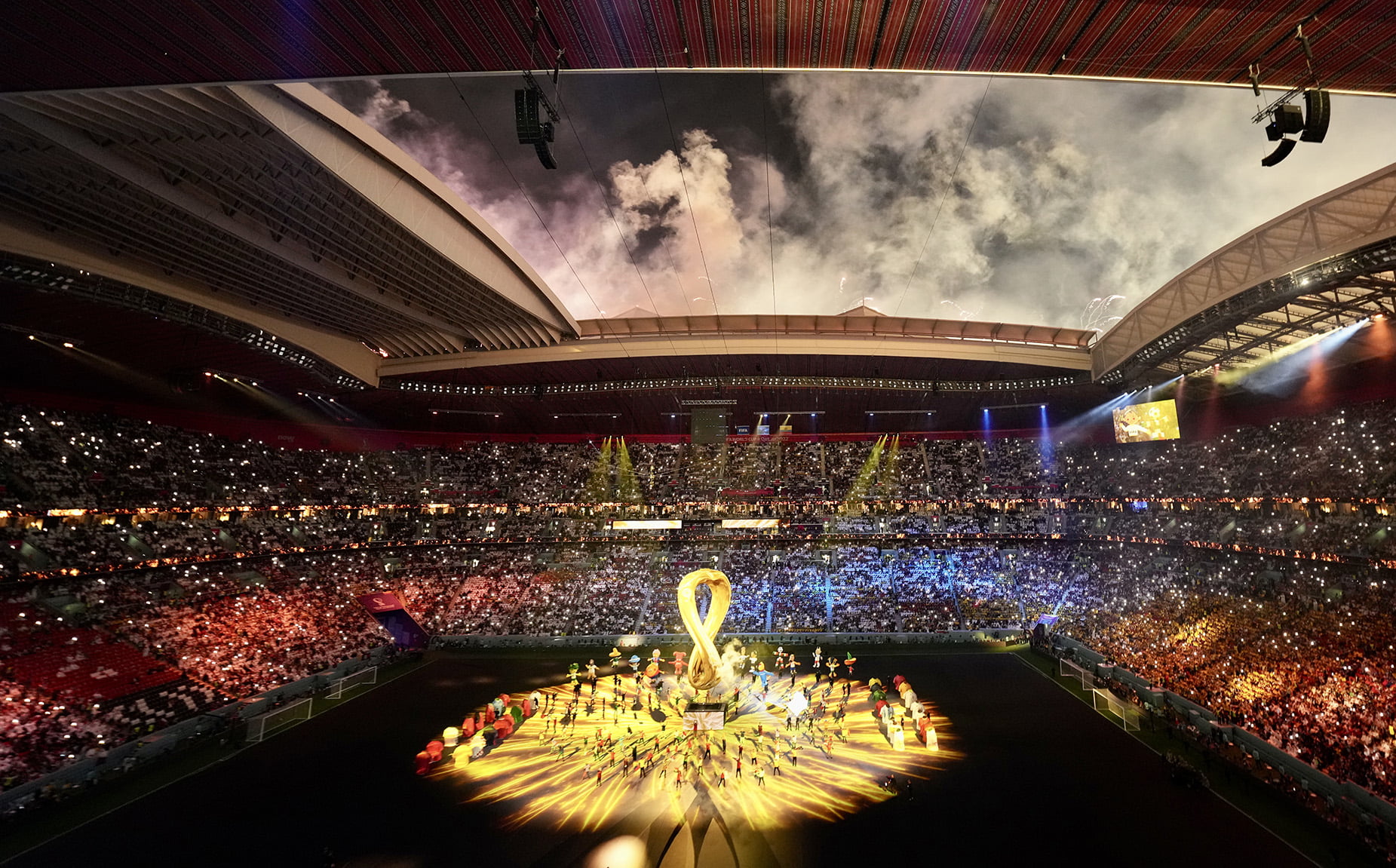
Three teams from the AFC (Australia, Japan and Korea Republic) have reached the knockout stages – a competition record for the Asian confederation, which previously only had two, in 2002 and 2010. Equally remarkably, for the second time, two African teams (Senegal and Morocco) have reached the knockout stages – the last occasion being in 2014.

History was also made by Stéphanie Frappart, who not only became the first woman to officiate a FIFA World Cup match but also, together with Neuza Back and Karen Díaz Medina, formed the first all-female trio to take charge. Against Ghana, Portuguese star Cristiano Ronaldo achieved another incredible milestone by becoming the first player to score at five editions of the tournament. Many matches have attracted the best audiences of the year in their respective countries, with England v. USA becoming the most-watched men’s football match on US television ever.

As the group stage wrapped up recently, the FIFA Fan Festival welcomed its one-millionth visitor. Besides the official tournament venues, Doha’s seaside promenade – the Corniche – has attracted more than two million people since the start of the tournament, with the traditional Souq Waqif market becoming another hotspot for fans from around the world. Uruguayan and Korean fans can be proud of having reached a mighty 131 decibels at their match at Education City Stadium – a noise akin to that heard at a live rock concert.
During the group stage, the Doha Metro and Lusail Tram networks notched up 9.19 million trips, with a daily average of 707,032 passengers.
In Japan, the group game between Japan and Costa Rica on November 27 drew an average audience of 36.37 million viewers. This surpassed the audience of their incredible comeback against Germany in their tournament opener by over 10 million and was 74% higher than the average domestic group stage audience during the FIFA World Cup in 2018.
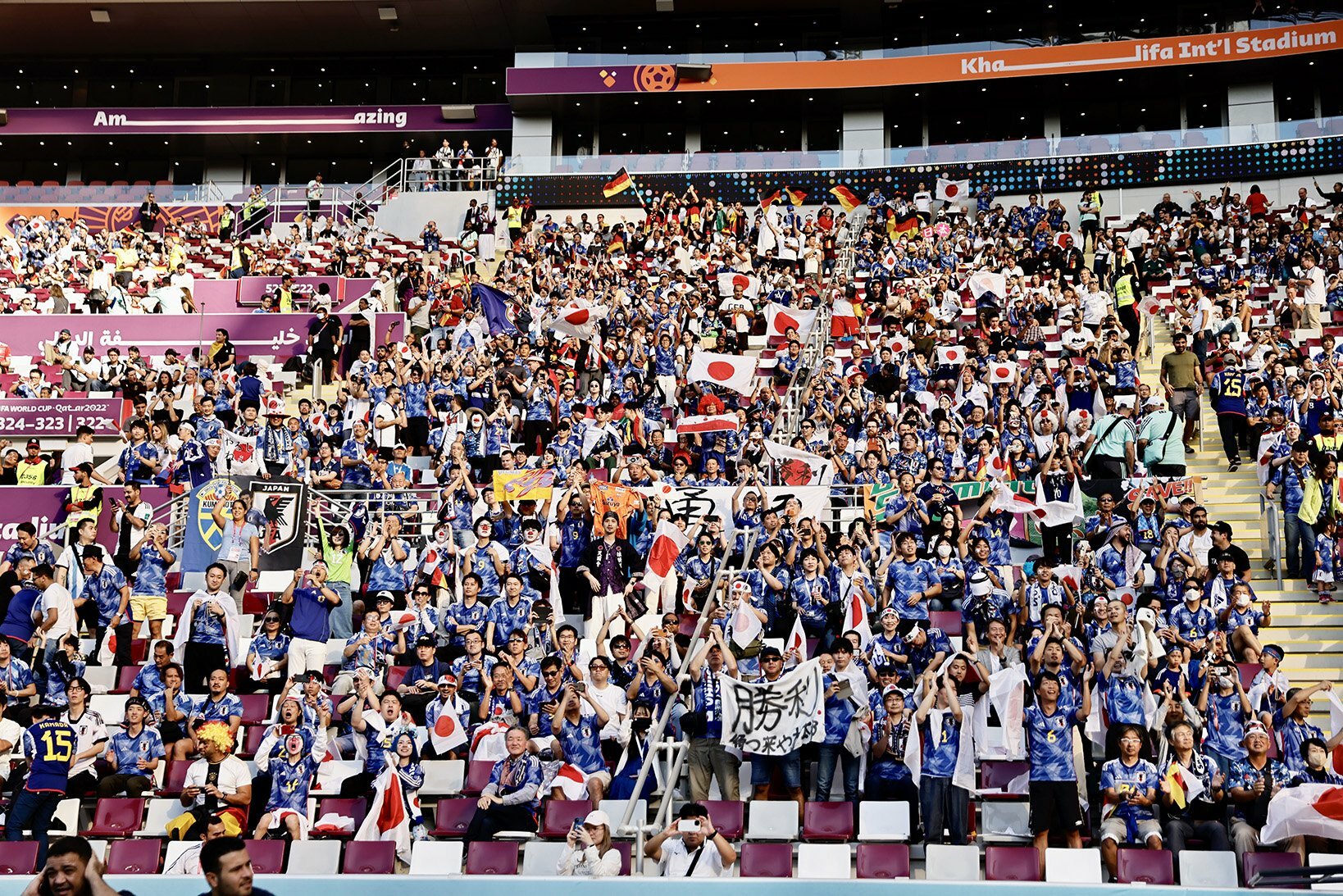
On November 24 in Korea Republic, 11.14 million people watched their tournament opener against Uruguay. The broadcast saw a 97% increase in TV audience compared to the average for group stage matches at the FIFA World Cup in Brazil in 2014; 18% higher than at Russia 2018. Fans in Europe have also been tuning in for the second round of group stage matches in great numbers. On November 28, 65% of people watching TV in Spain saw La Roja take on Germany in one of the most anticipated games of the tournament so far. 11.9 million was the combined audience across coverage on La1 and GOL MUNDIAL, exceeding the audience of any group stage game for the FIFA World Cup in 2018.

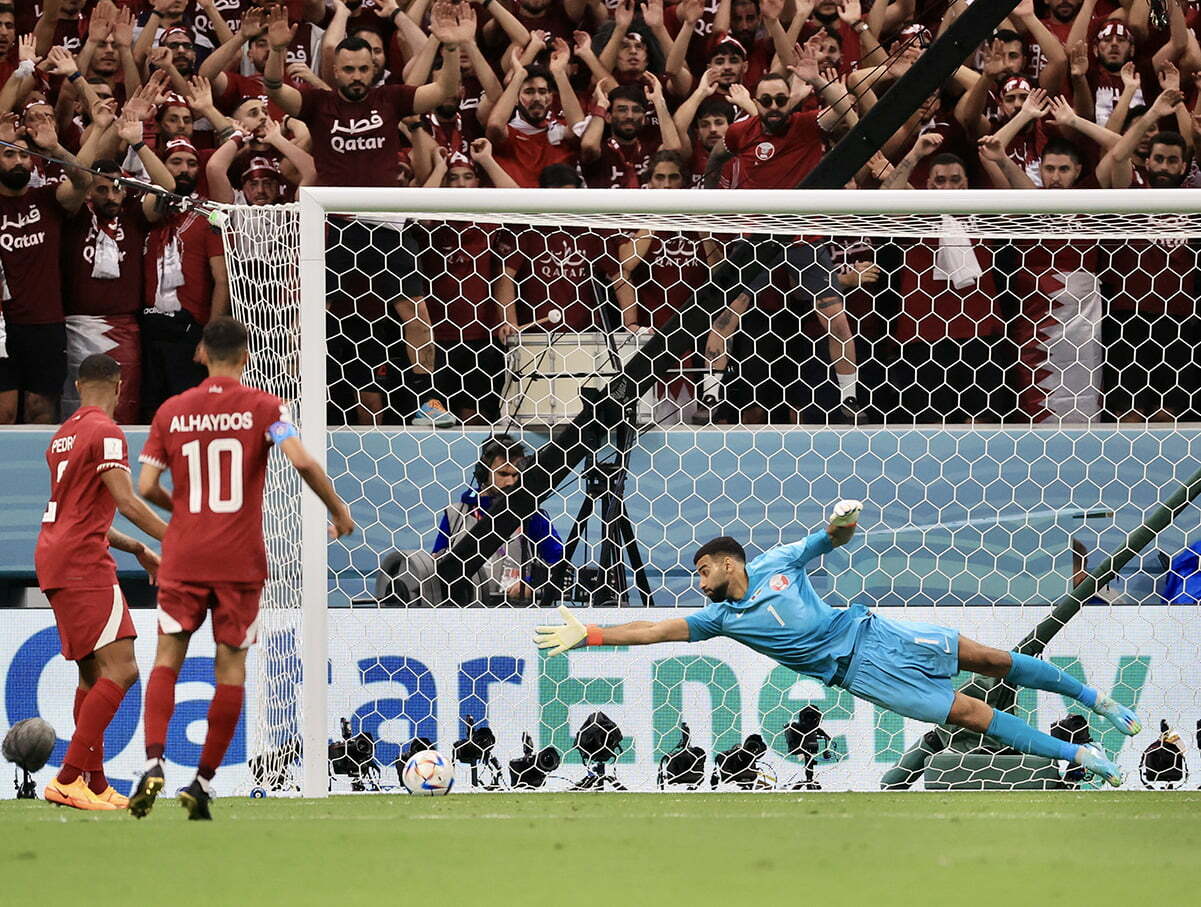
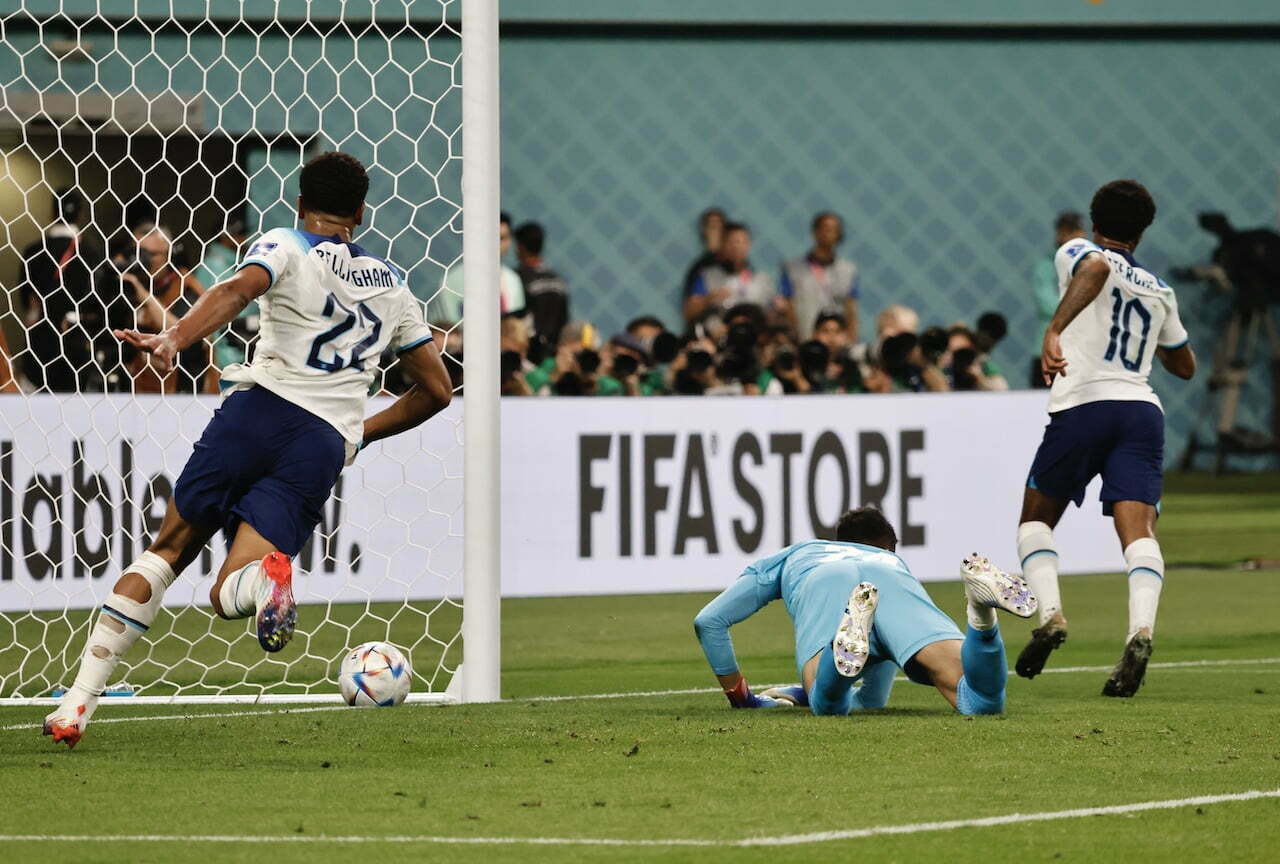
Over three-quarters, (76.6%) of all people watching TV in the Netherlands witnessed Cody Gakpo’s wonder strike in their 1-1 draw with Ecuador. This was the highest TV audience in the country in 2022 and greater than any match during the FIFA World Cup in 2018. In France, Les Bleus’ encounter with Denmark, was broadcast on TF1. Averaging an audience of 11.6 million viewers, the program audience peaked in the closing minutes of the match as 14.56 million watched Kylian Mbappe score a late winner. This was the highest peak of the tournament in France so far, beating 14 million viewers during France’s opening match against Australia. Portugal’s match with Uruguay on November 28 was the highest TV audience in Portugal for a FIFA World Cup match ever. In total, 5.35 million viewers in Portugal watched at least one minute of coverage as the team progressed to the knockout stages. The coverage held an audience share of 69.5% as A Seleção got their second win in as many games at the tournament. Over 80% of the Portuguese TV landscape has now watched at least one minute of the tournament’s coverage.
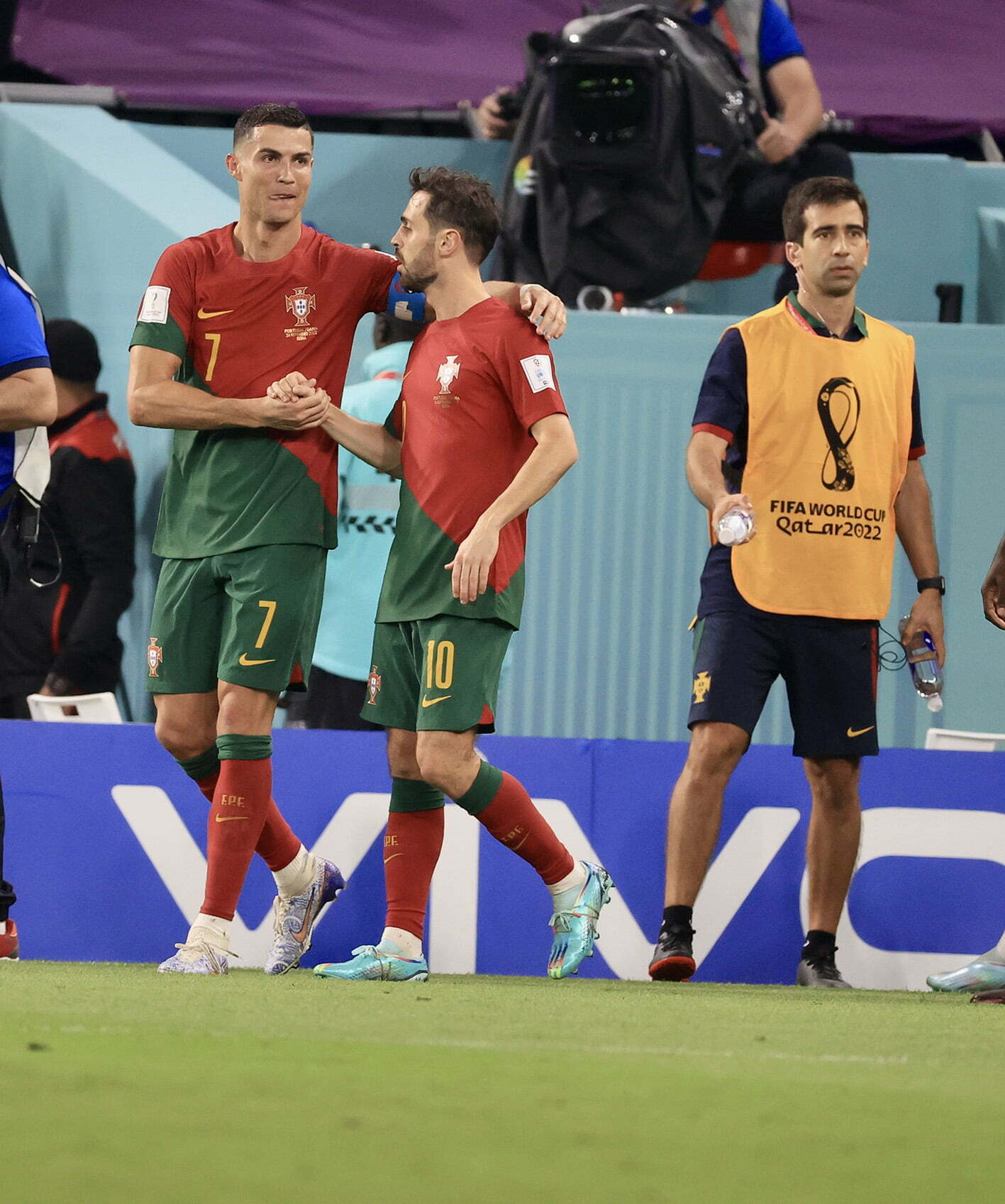
In addition, interest in the beautiful game in the United States continues to grow with new records continuously being broken. The English-language coverage of USA’s encounter with England on November 25 was the most watched men’s football match on US television ever, with a peak audience of 19.65 million viewers on FOX. NBC-Universal’s Spanish-language coverage of the match on Telemundo was the second-most watched FIFA World Cup group stage match featuring a United States team in Spanish-language history. The following day, as Argentina and Mexico met in a crucial Group C tie, the Telemundo broadcast in the US was the most-watched FIFA World Cup Group Stage match in Spanish-language history in the country, and the second largest of any stage, ever. Meanwhile, in Mexico, coverage of the same match delivered a national audience of 20.96 million viewers. The combined share across three channels broadcasting the game was 67.9%. This was higher than the top combined rating in the territory for any match of the FIFA World Cup in 2018.
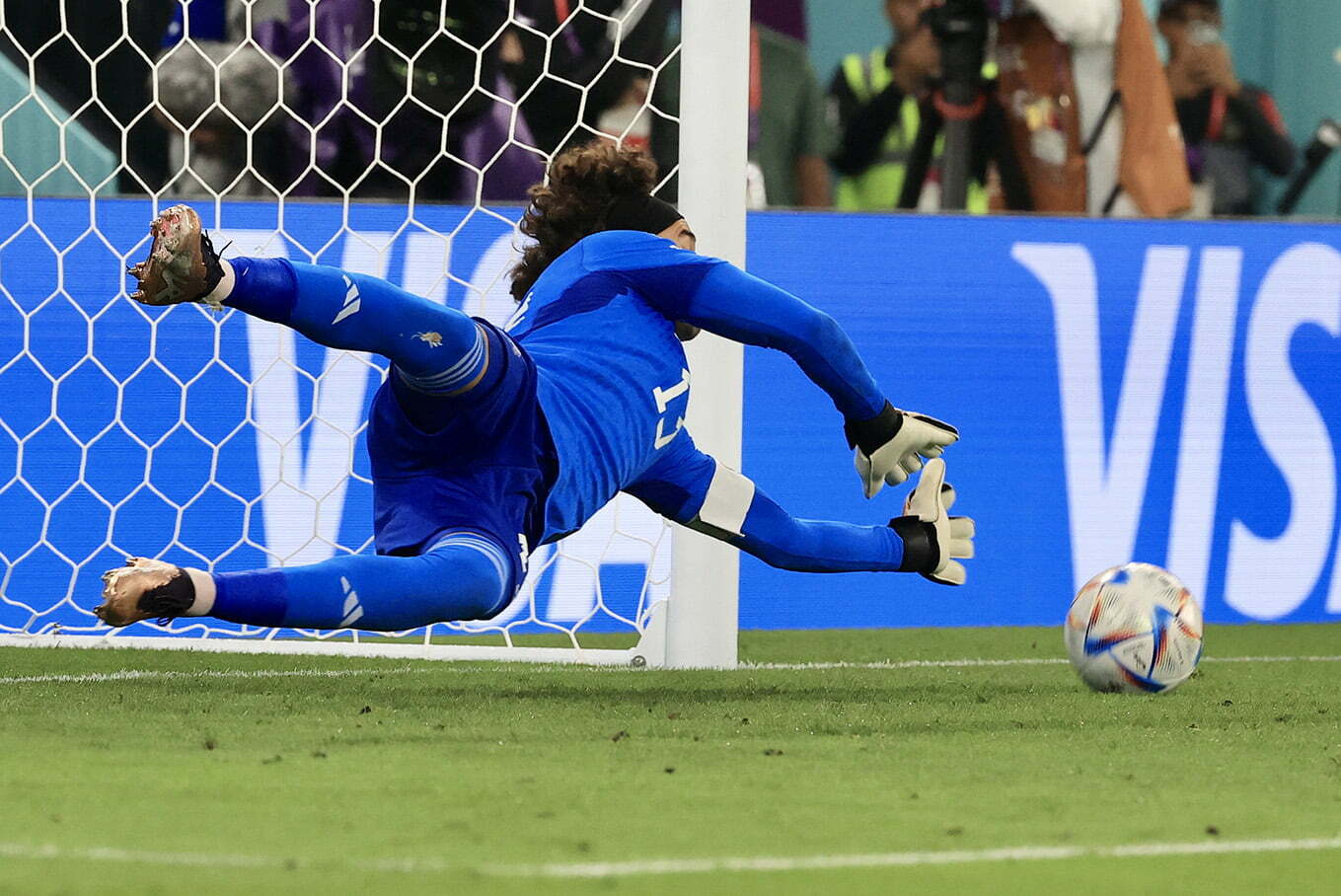
In addition, the average audience in Canada for their make-or-break tie with Croatia was 4.33 million, with a share of 68.4%. This was 17% higher than Canada’s opening match and 12% higher than the top combined audience in the territory for the 2018 tournament. Passion for the game in South America knows no bounds with fans unsurprisingly as engaged as ever. In Argentina, the average audience for the two-time winners of the FIFA World Cup in their pivotal match with Mexico was 8.48 million; delivering an amazing audience share of 81.3%. The program audience was the highest of the tournament so far in the country and 5% higher than both their first match against Saudi Arabia, and the average audience for their group stage matches during the FIFA World Cup 2018.
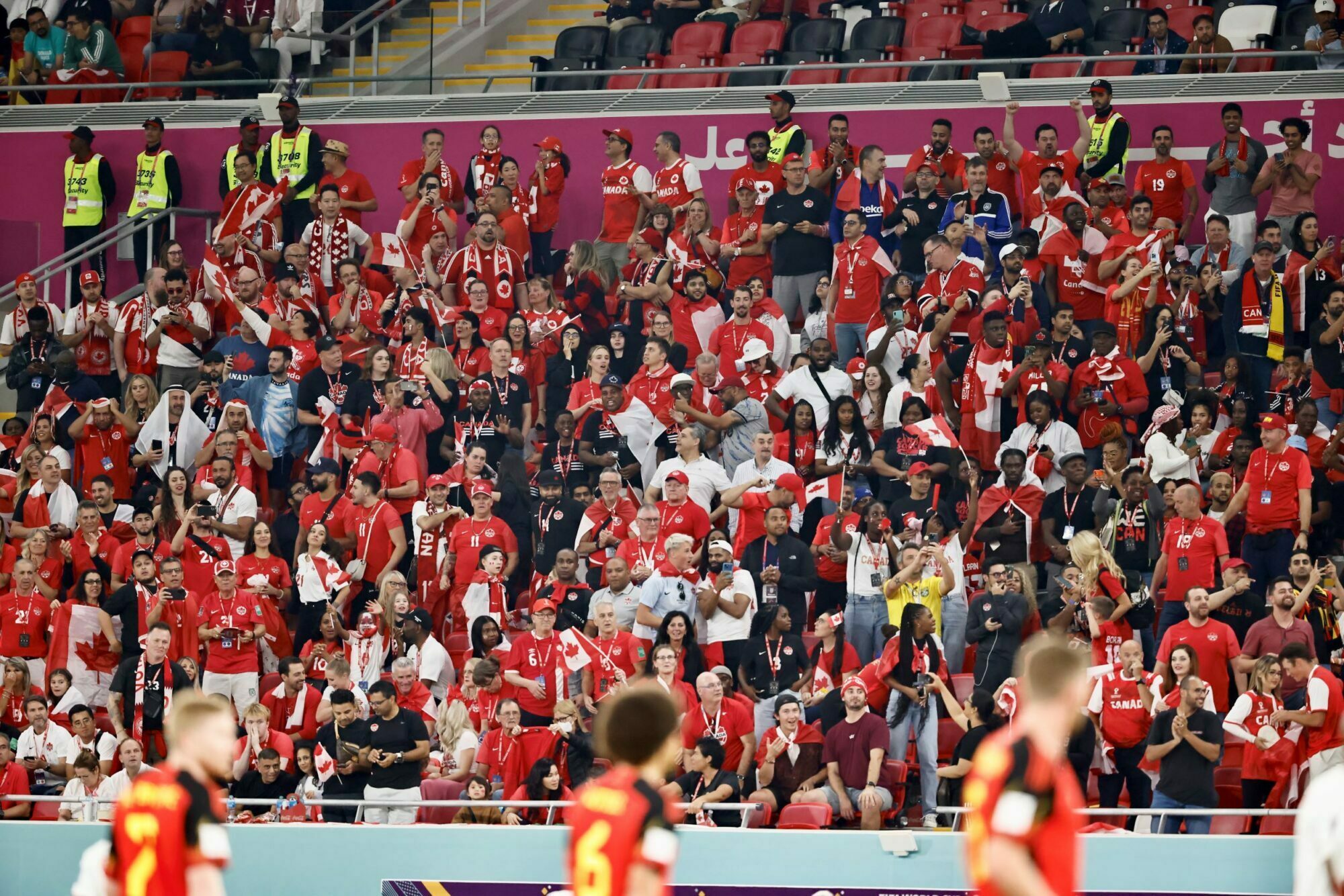
OPENING CEREMONY PHOTOS
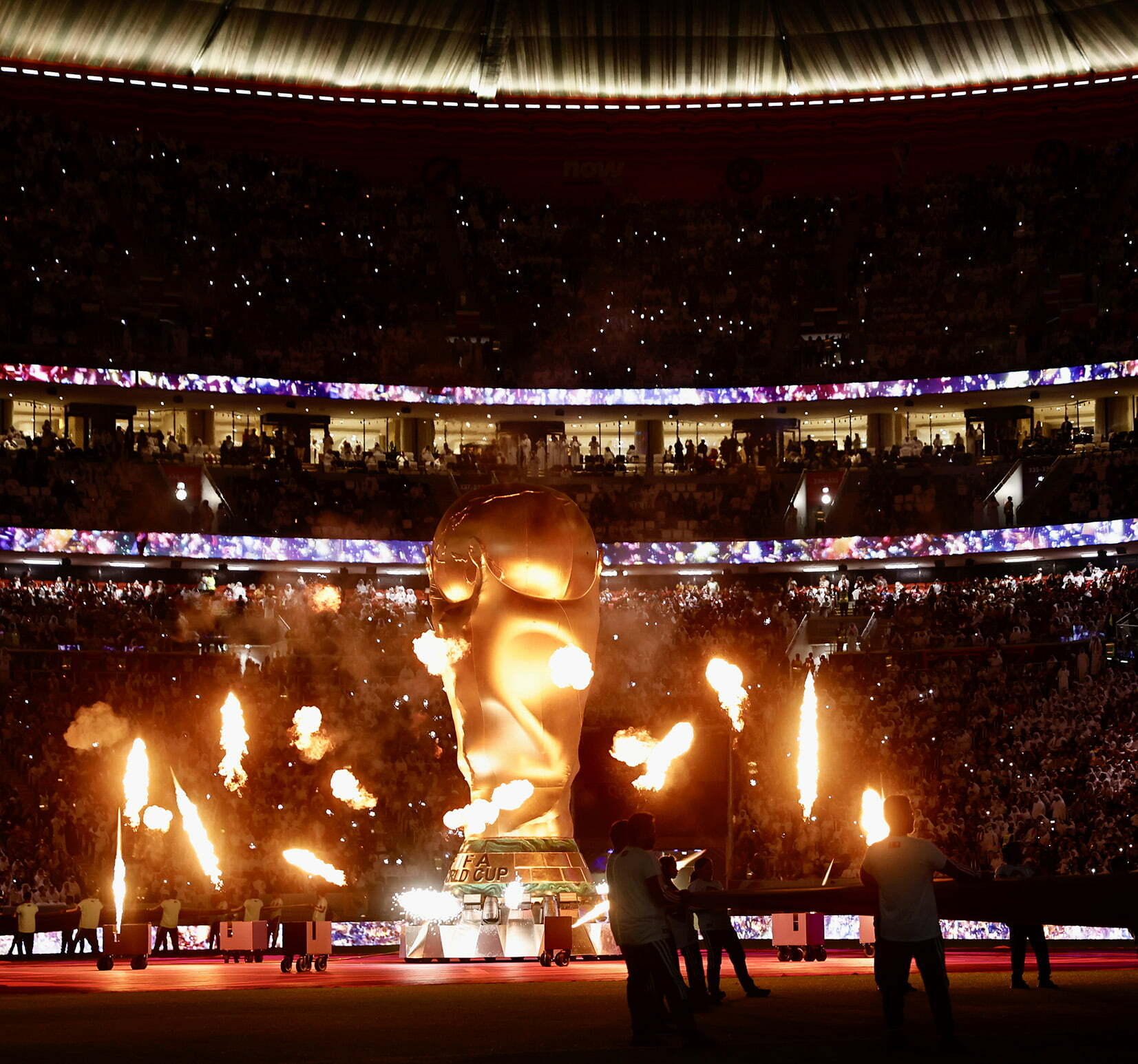
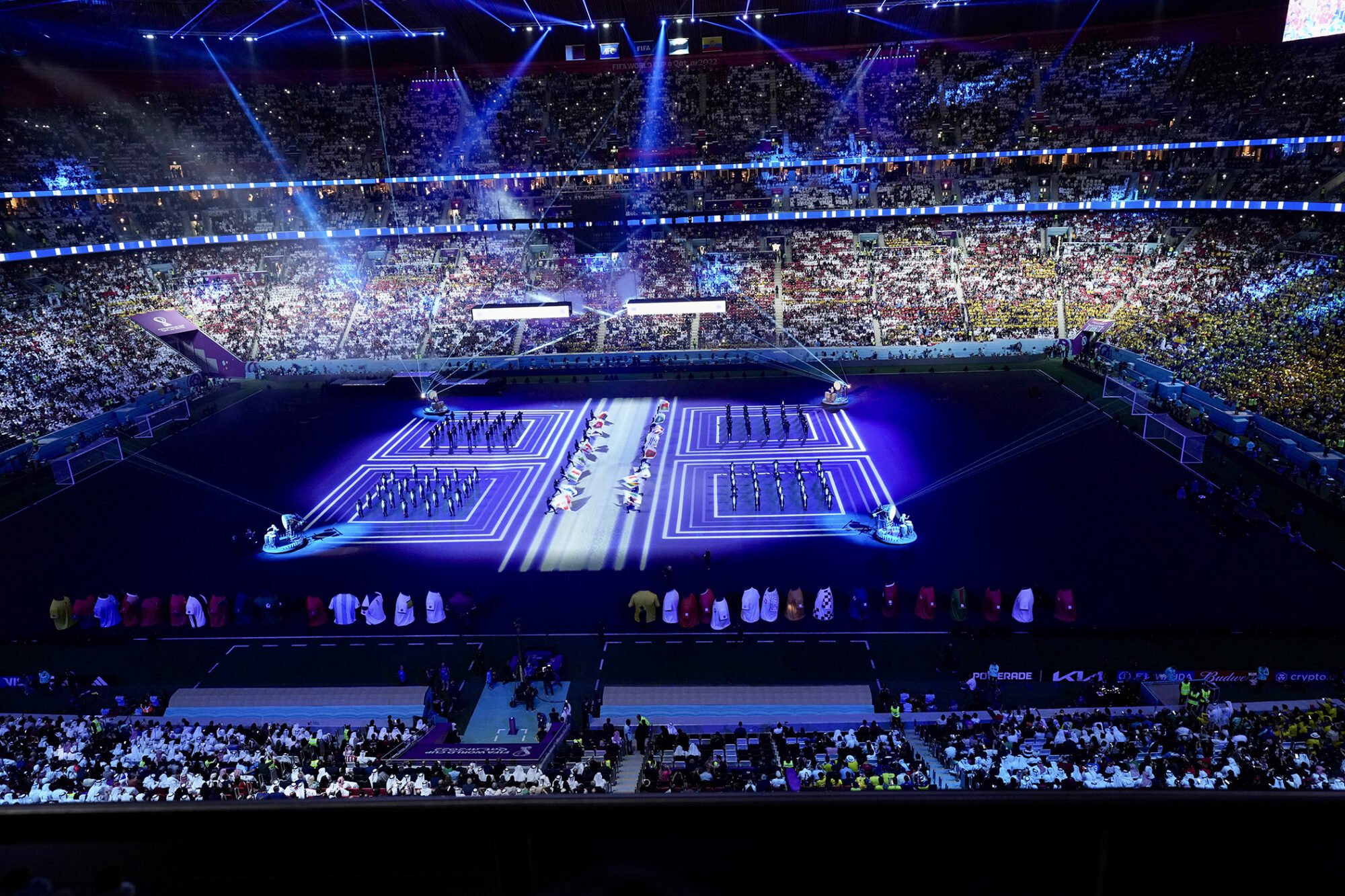
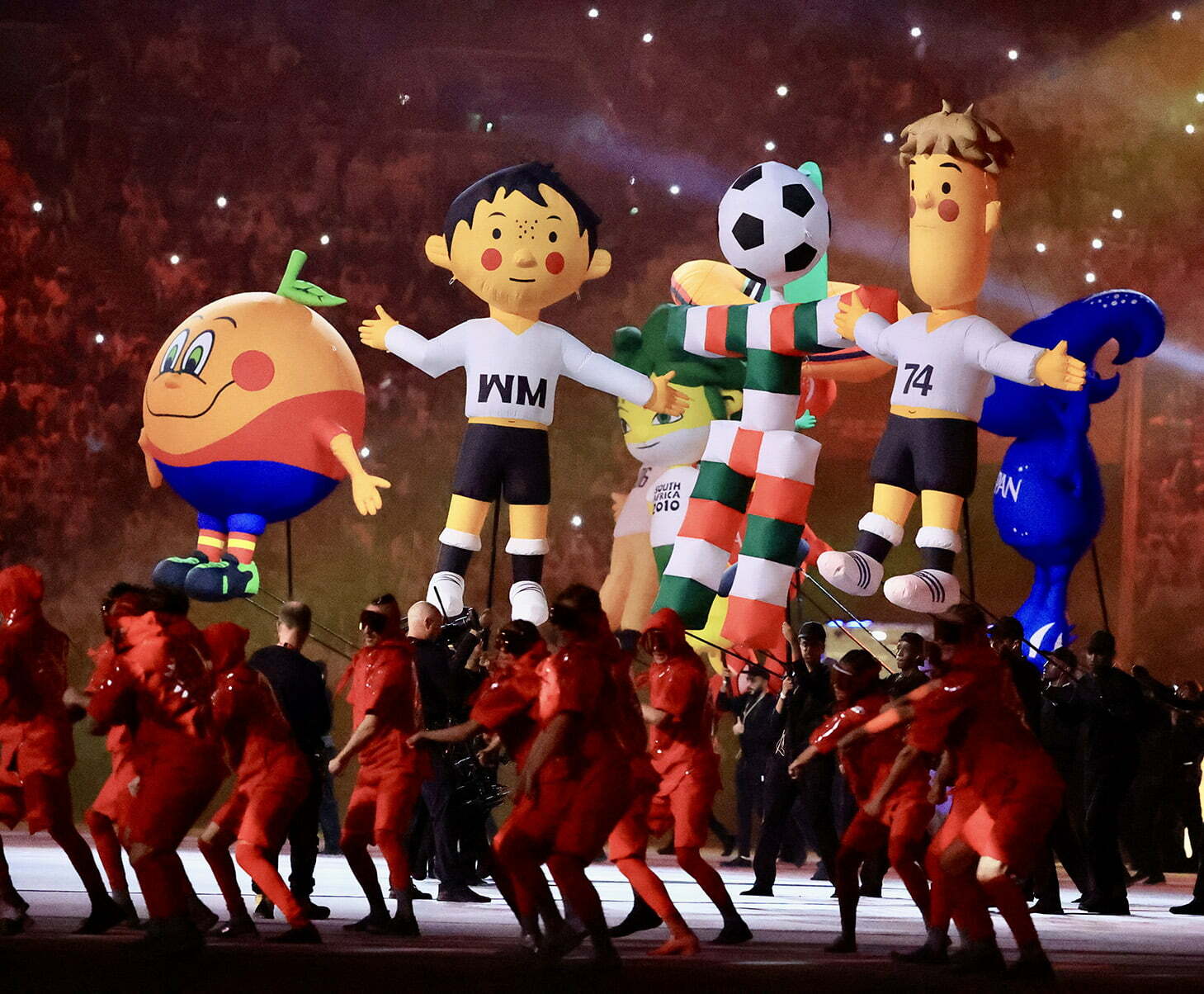
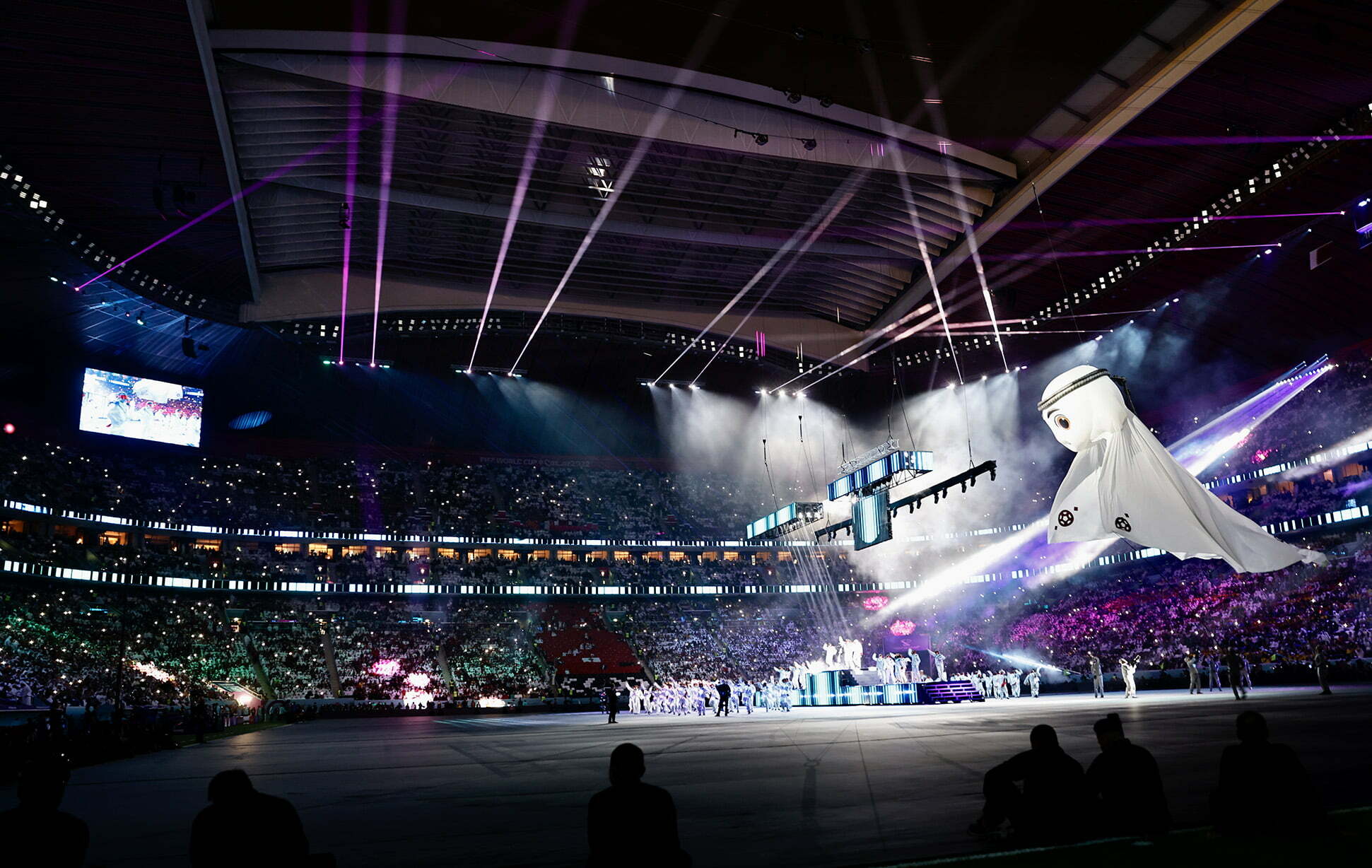
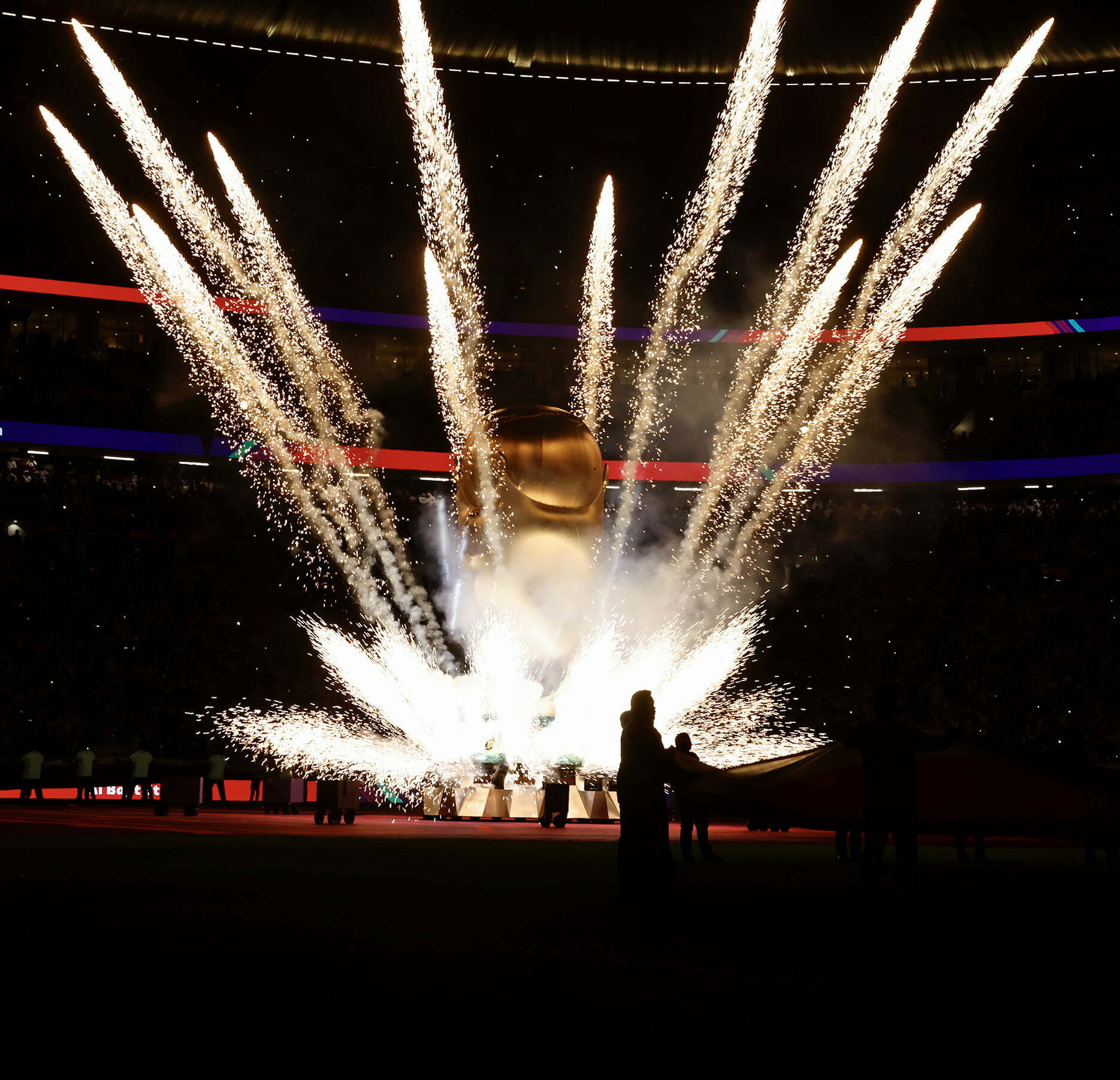
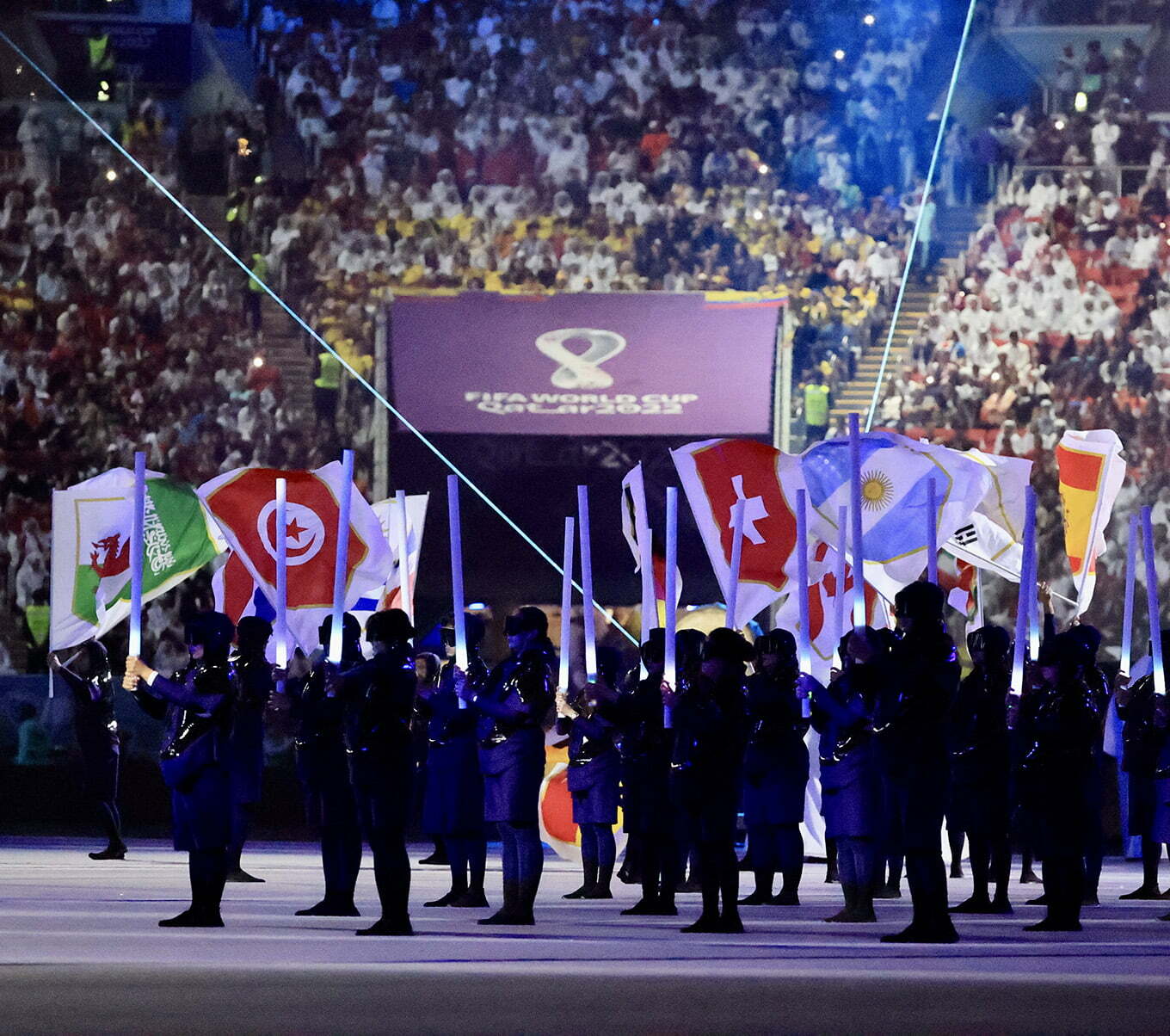
Discover more from SNAP TASTE
Subscribe to get the latest posts sent to your email.



